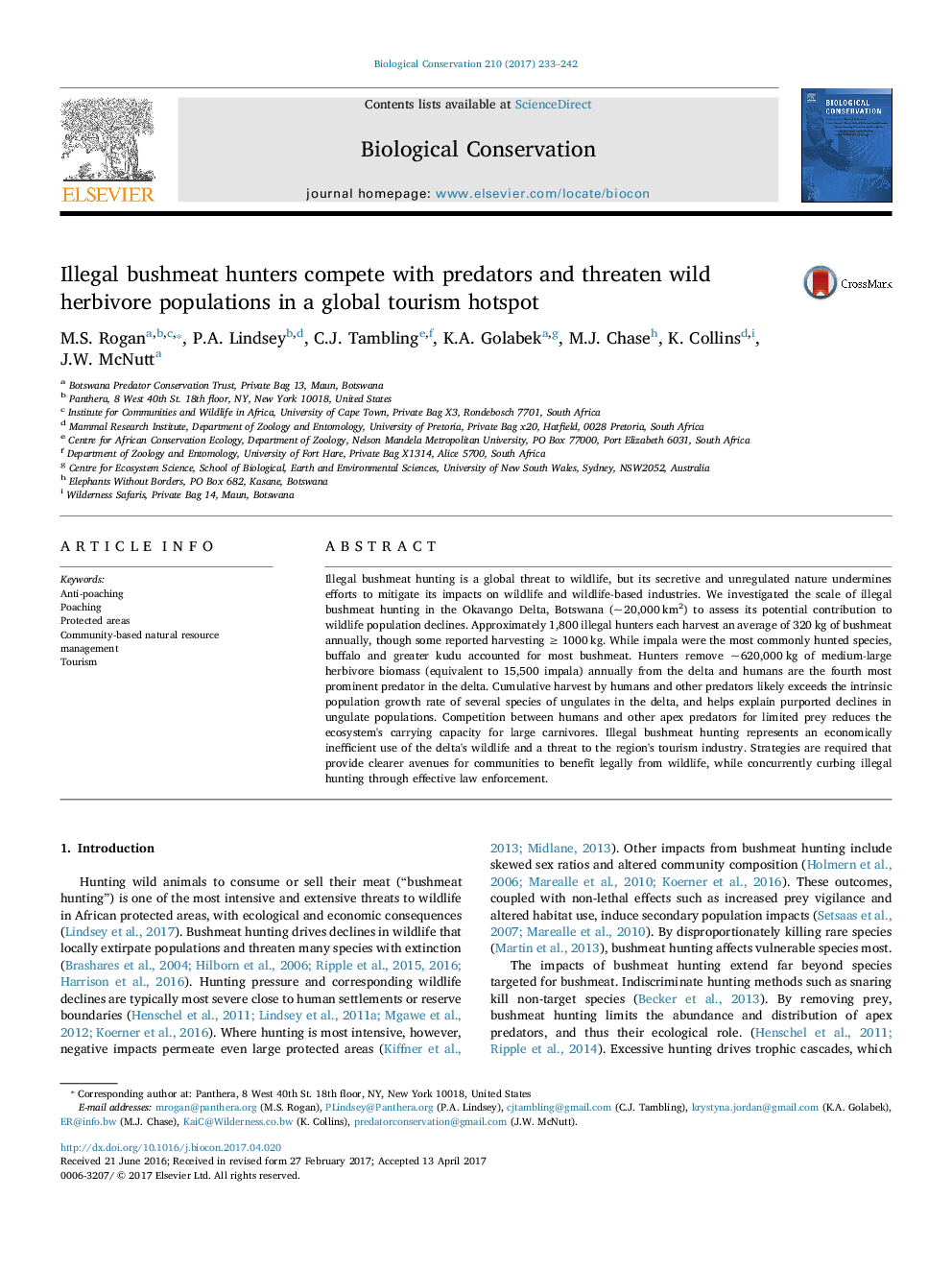ترجمه فارسی عنوان مقاله
شکارچیان غیرقانونی مشروبات الکلی با شکارچیان رقابت می کنند و جمعیت های گیاهخوار وحشی را در یک کانون گردشگری جهانی تهدید می کنند
عنوان انگلیسی
Illegal bushmeat hunters compete with predators and threaten wild herbivore populations in a global tourism hotspot
| کد مقاله | سال انتشار | تعداد صفحات مقاله انگلیسی |
|---|---|---|
| 104728 | 2017 | 10 صفحه PDF |
منبع

Publisher : Elsevier - Science Direct (الزویر - ساینس دایرکت)
Journal : Biological Conservation, Volume 210, Part A, June 2017, Pages 233-242
ترجمه کلمات کلیدی
ضد شکارچی شکارچی مناطق حفاظت شده، مدیریت منابع طبیعی مبتنی بر جامعه، گردشگری،
کلمات کلیدی انگلیسی
Anti-poaching; Poaching; Protected areas; Community-based natural resource management; Tourism;

